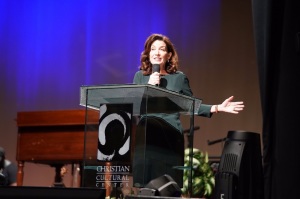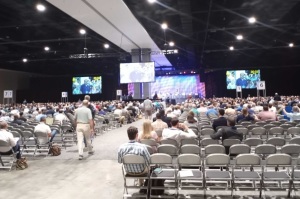Scholar: Churches Can Use Internet to Reach Non-Seekers
The Internet is not only useful for churches in communicating with seekers, but it can also be harnessed to reach people not actively looking for answers, says a Danish scholar.
Peter Fischer-Nielsen, a Ph.D Fellow at the Faculty of Theology at Aarhus University in Denmark, recognizes the difficulty churches have in reaching non-seekers in real life and on the World Wide Web. Non-seekers are often not interested in visiting Christian Web sites, but churches can still meet them by going to their Web turf.
"[T]he church must not isolate itself on its own Web sites; instead, it must take part in the fluent online traffic and develop initiatives on various platforms such as Facebook, YouTube, and Wikipedia," says Fischer-Nielsen in an article entitled, "Online Mission," in the latest issue of Lausanne World Pulse.
Fischer-Nielsen, who is researching church communication on the Internet, wrote that the mission of the Church is to reach the world with the Gospel message. The Internet allows the Church to enlarge its reach to anywhere in the world where there is Internet, including in countries hostile to Christianity, he said.
So churches need to be technologically savvy and create Web sites that can be found through popular search engines such as Google, as well as create an online presence on growingly popular social networking sites.
Some Christian ministries have reported much evangelism success after using the Internet to find seekers. Campus Crusade for Christ's Global Media Outreach is among the success stories, having harnessed the Internet to create a volunteer force of thousands of online missionaries.
In July, GMO announced that over 1 million people indicated a first-time decision to follow Jesus or a decision to recommit their life to Christ through one of more than 90 GMO-hosted Gospel Web sites since its inception in 2004.
The media ministry estimates that 1 in 1,000 Internet searchers is looking for information about God. On a daily basis, around two million people look for God.
"This is an historic event only possible by God's power," said GMO founder and chair Walt Wilson.
But both Fischer-Nielsen and GMO agree that the Internet does not take the place of church communities. The scholar and ministry support connecting people who make the decision for Christ to discipleship programs or to local churches.
"These online communities are not a replacement to traditional physical congregations, but a supplement," says Fischer-Nielsen, who also acknowledges that in some cases they are the only Christian communities for people who would be in danger if others knew of their faith commitment.
The Danish scholar concluded, "The Internet has come to stay and the Church must continually be in dialogue concerning how the Internet can be used to serve its mission."





























